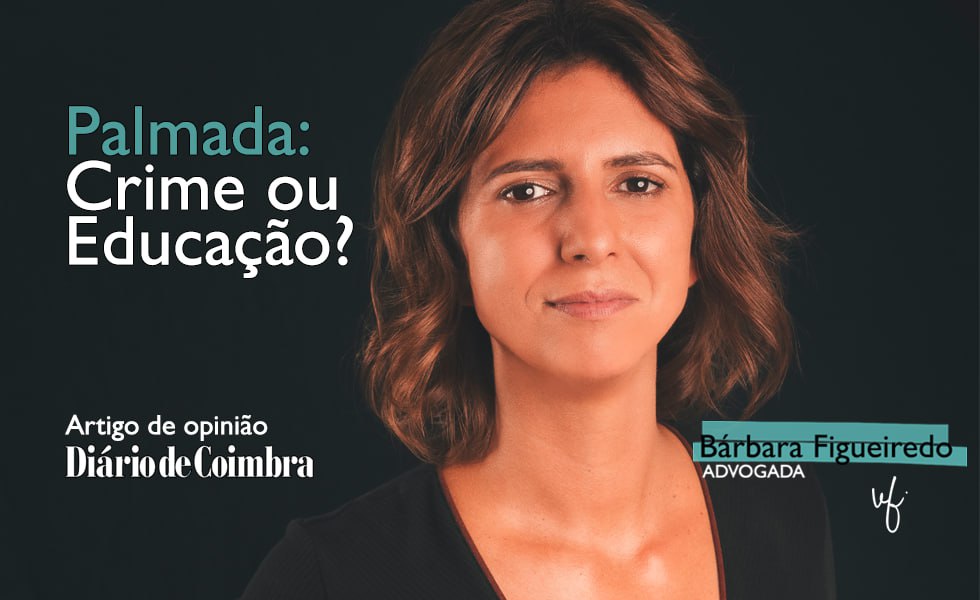Spanking: Crime or Education?

June 20, 2024
Opinion piece by Bárbara Figueiredo published [in Portuguese] in the Diário de Coimbra newspaper
Until reaching adulthood, children’s rights are—or should be—ensured by their parents or those responsible for parental duties. While in most cases, parents are the ultimate refuge for children, the reality is that parental violence is far from eradicated. This is the context in which the discussion about “educational spanking” arises. While violent physical aggression as a form of disciplining children is now socially and legally unacceptable, educational spanking continues to divide opinions. Many parents still use it as a means of fulfilling their power-duty to educate (which is supported by Article 1885 of the Civil Code and includes the power to correct), while others consider this form of education entirely unacceptable.
In terms of criminal law, physical punishments inflicted on minors can be classified as domestic violence if they meet the requirements outlined in Article 152, paragraph 1 of the Penal Code. This legal provision states that anyone who repeatedly or not inflicts physical or psychological abuse, including corporal punishment, on a minor who is their descendant, is punished with imprisonment from 1 to 5 years, if no more severe penalty is applicable under another legal provision. Conviction for this type of crime can, considering the specific severity of the act, lead to the suspension of parental responsibilities for a period of 1 to 10 years, under the terms of paragraph 6 of the said provision. Violence against minors can also be classified as the crime of mistreatment (provided for and punished by Article 152-A of the Penal Code) or as the crime of simple physical assault, detailed in Article 143 of the same legal document.
Determining the criminal relevance of educational spanking (and the need to punish the perpetrator to protect the child) will always involve comparing the aforementioned types of crimes with the power-duty to educate. Thus, a potential criminal classification will always require analyzing the conduct to assess its appropriateness and proportionality, with reference to the educational intention included in that power-duty to educate. In criminal terms, the boundary will be defined by a possible exclusion of illegality under Article 31 of the Penal Code, as the conduct may not be punishable if the act was carried out in the exercise of a right or even in the fulfillment of a duty (in this case, the duty to educate). Ultimately, doing nothing can also lead to intervention, albeit under minor tutelary law.


